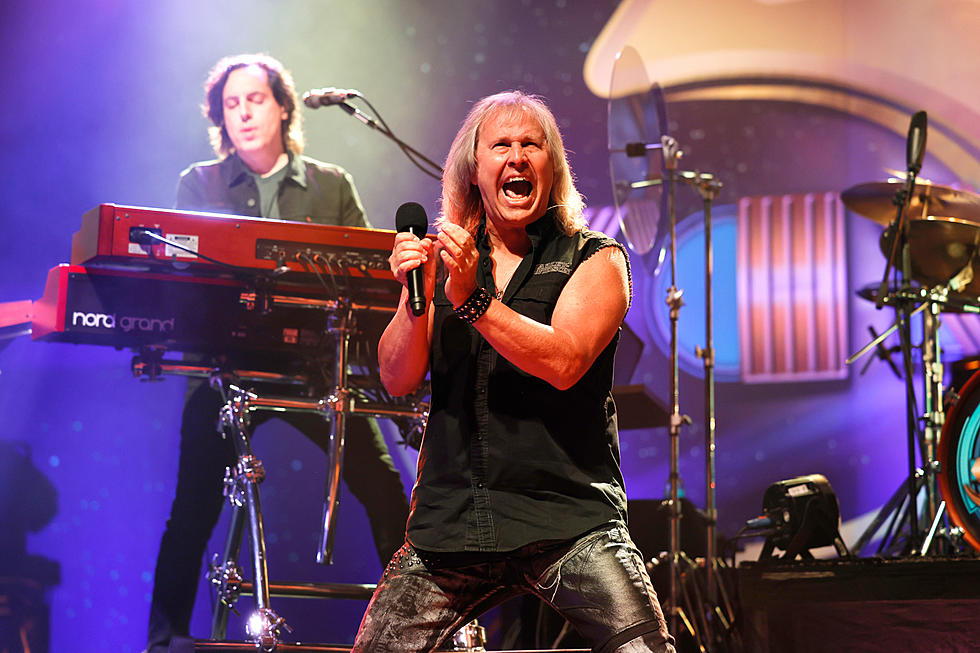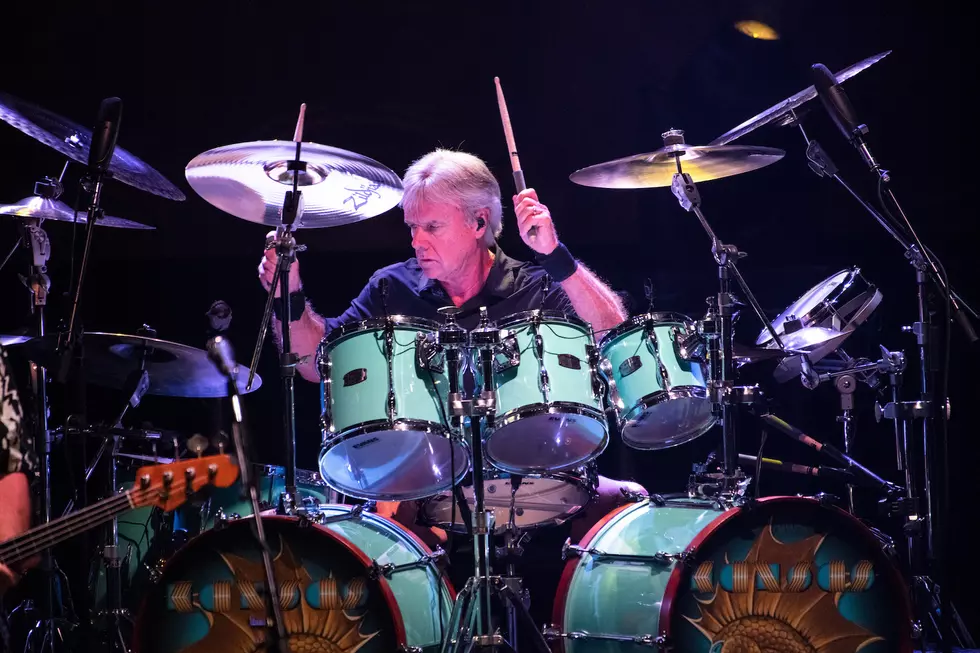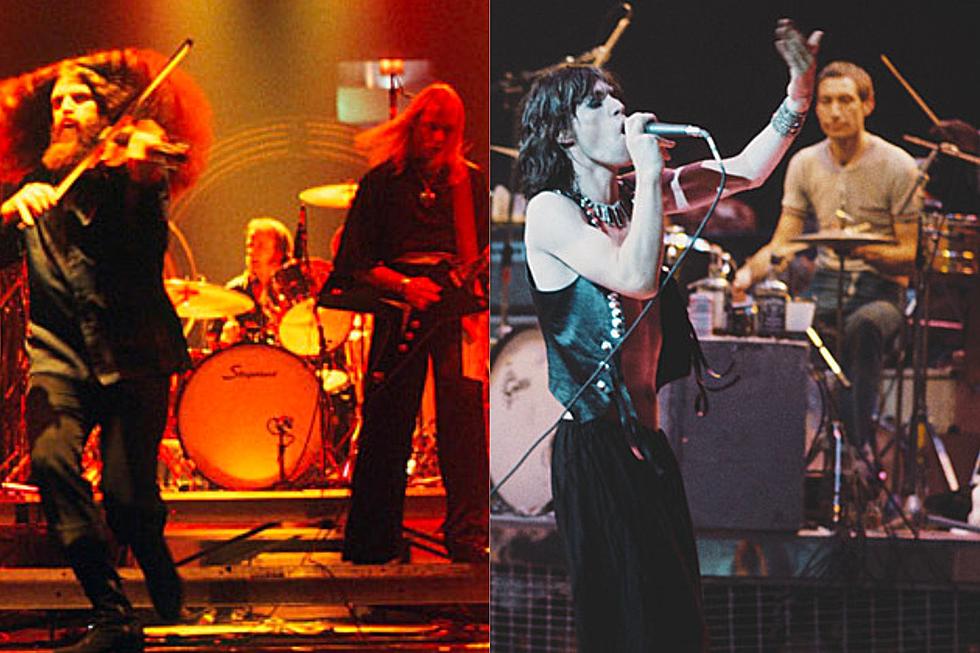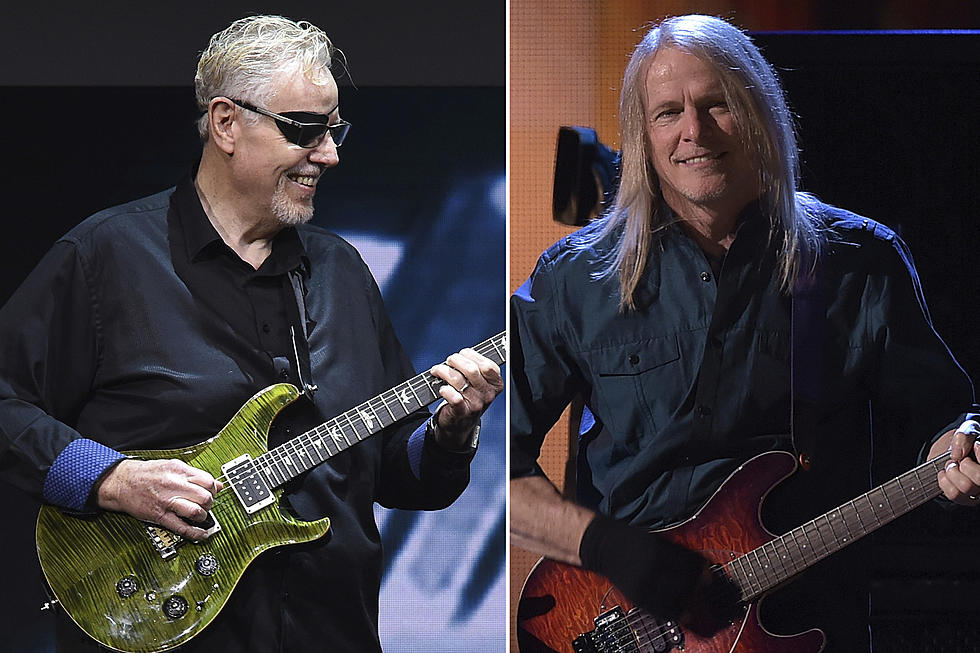40 Years Ago: Kansas Carry On in a Big Way With ‘Leftoverture’
The a capella vocal opening of “Carry On Wayward Son” was a moment that signified the floodgates of success were about to open wide for Kansas. It was one song among a stack of many others on the Leftoverture album -- including “Magnum Opus,” “The Wall,” “What’s On My Mind” and “Opus Insert” -- that would become classic and well-known favorites.
Everything that had happened for the band up to that point had been a building process. As guitarist Richard Williams shared during a 2015 conversation with Ultimate Classic Rock, when they went in to record their second album, Song for America, they launched into the process with a definite purpose. “We’d done the first album and we’d kind of learned from that, we don’t want to do it that way this time,” he says. “We’re not going to be told how to record this time, we’re going to dictate how we’re going to record. We just learned how to use to the studio a little bit better.”
In the film Miracles Out of Nowhere, producer Brendan O’ Brien recalled hearing the Song for America album for the first time, thinking that it must have taken the band a year to accomplish what they had put down in the recording studio. In reality, as drummer Phil Ehart reflected, they spent about a month recording the album -- in fact, they were so prolific they put out Song for America in February 1975 and had their third album, Masque, on the shelves by September that same year.
When the band wasn't in the studio, it was on the road and touring relentlessly. When it came time to record their fourth album, which would become Leftoverture, Kansas had a problem -- they didn’t have the material ready to go. The epic “Magnum Opus” was originally titled “Leftoverture,” because it was made up of bits and pieces of music that the group had developed during soundchecks, as well as some parts leftover from the Masque album. As album producer Jeff Glixman remembered, all the pieces fell together song-wise and they suddenly had their album title too: “We fell in love with the name and made it the name of the album instead and we changed the name of the song to 'Magnum Opus.'"
Singer Steve Walsh was struggling with writer’s block, and guitarist Kerry Livgren, who eventually would pen five of the album’s eight tracks, brought “What’s on My Mind” to the table, and it was one that worked well as as a starting point. From there, things would only get better as Glixman continued to work with the group preparing to record the album. “Kerry was writing like a madman during the time we were in rehearsal and what songs he was delivering,” he recalls.
Surprisingly,“Carry On Wayward Son” was the last song to arrive for Leftoverture. “Kerry was on an incredible writing roll, and we had been learning song after song," Williams recalled. "As exciting as working on new material is, we were ready to move on to the next phase - going to the studio and recording. When Kerry walked in the final day of rehearsals and announced he had one more song, we were less than eager, but there definitely were some cool parts and great lyrics. The interesting thing is that while all the other songs on Leftoverture had been rearranged and rehearsed many times before we came to the studio, 'Wayward Son' was, for the most part, learned in the studio, as the tape was rolling. The version you hear is probably the first time we played it correctly.”
As Ehart told Ultimate Classic Rock during a 2016 interview, it was a song that they heard and knew that they had crafted a winner.
“‘Wayward Son’ was probably the song that we all looked at each other the most and went, ‘Oh boy, that’s definitely got something there that we haven’t had ever.’ It was hard to miss,” he says. “That would have taken a lot of work for that one not to hit. But we had done our homework, you know? We had done those three previous albums and toured 200 nights a year every year, album/tour/album/tour and so when it hit, we had laid the groundwork at radio and with our fan base and stuff and exploded.”
All of the work the group had done in the preceding years finally paid off in a big way with Leftoverture. “We were really starting to get a lot of the recognition as an opening band, because we were out there with Queen, we were out there with Bad Company, we were out there with so many different bands,” Ehart says. “We were starting to get the recognition as a musician’s band -- not so much on the radio, but just as a band of musicians playing a certain level of music. The whole foundation was there from all of that work. So when Leftoverture hit, it was a much bigger fire than it probably would have been without all of that work we did before.”
As it happens, the forest fire of success which burned brightly as a result of Leftoverture couldn’t have arrived at a better time. “We didn’t realize how big it needed to be," Ehart recalls. "Obviously, we were hoping it was going to be a success, but we just didn’t know at the time how much longer Don Kirshner was going to hang in there with us. This was the fourth record and he still hadn’t had a hit and you know, he needed a hit. The album came out and “Carry On Wayward Son” hit and kaboom! -- it just exploded. The rest is history.
"Looking back, it was just not something that we were that aware of," he continues. "Because we were working so much. We were just such young guys that it was just something that we were having a lot of success on the FM radio, but AM radio wasn’t really playing much of Kansas. When ‘Wayward Son’ hit, it changed everybody’s lives and gave us a career to where I’m talking to you still today. After that, Point of Know Return came out and then ‘Dust in the Wind’ hit, and we just had three or four hits right in a row and that just about set us up. It was an exciting time. But we were working very hard then too. I think Leftoverture was probably right around that time when the band was really developing its sound. That was the one that reached the most people, so it worked out well.”
Top 100 Classic Rock Artists
More From Ultimate Classic Rock









